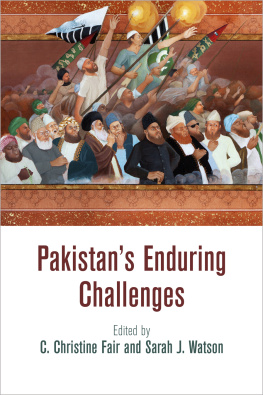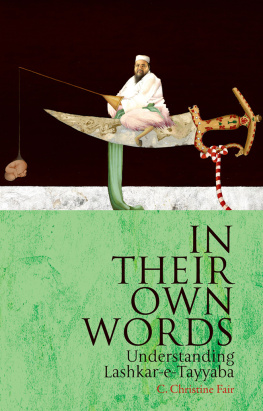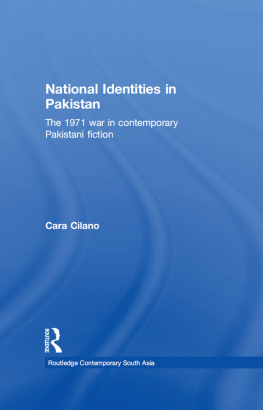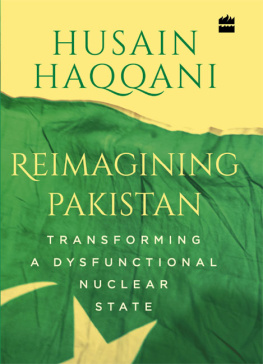
Pakistan in National and Regional Change
Pakistan is one of the most important states in the international system and a key concern of western security. This collection identifies a set of national and regional/international trends which will be critical in determining the medium to long-term stability and cohesion of Pakistan, yet which have received relatively little attention elsewhere. Experts on different aspects of Pakistan explore issues of political Islam, minorities, wider political trends, and the economic impacts of the recent floods to seek to explain some of the key drivers of change within Pakistan, and to reflect on the dynamics of US-Pakistan relationships and Pakistans rethinking of its regional relationships to understand key regional and international dynamics shaping Pakistans future. This book will be of interest to scholars in South Asian political studies, ethnic studies and international relations.
This book was published as a special issue of Contemporary South Asia.
C. Christine Fair is Assistant Professor in the Security Studies Program at the Edmund A. Walsh School of Foreign Service, Georgetown University, Washington DC. She publishes extensively on Pakistan and the wider South Asian region and is widely consulted by the policy community and by the media.
Shaun Gregory is Professor of International Security and Director of the Pakistan Security Research Unit, University of Bradford. He writes widely about Pakistan and has a particular interest in terrorism/extremism, the stability and cohesion of the Pakistan state, and Pakistans nuclear weapons.
Pakistan in National and Regional Change
State and Society in Flux
Edited by
C. Christine Fair and Shaun Gregory
First published 2013
by Routledge
2 Park Square, Milton Park, Abingdon, Oxon, OX14 4RN
Simultaneously published in the USA and Canada
by Routledge
711 Third Avenue, New York, NY 10017
Routledge is an imprint of the Taylor & Francis Group, an informa business
2013 Taylor & Francis
All rights reserved. No part of this book may be reprinted or reproduced or utilised in any form or by any electronic, mechanical, or other means, now known or hereafter invented, including photocopying and recording, or in any information storage or retrieval system, without permission in writing from the publishers.
Trademark notice: Product or corporate names may be trademarks or registered trademarks, and are used only for identification and explanation without intent to infringe.
British Library Cataloguing in Publication Data
A catalogue record for this book is available from the British Library
ISBN13: 978-0-415-83134-5
Typeset in Times New Roman
by Taylor & Francis Books
Publishers Note
Every effort has been made to contact copyright holders for their permission to reprint material in this book. The publishers would be grateful to hear from any copyright holder who is not here acknowledged and will undertake to rectify any errors or omissions in future editions of this book.
The publisher accepts responsibility for any inconsistencies that may have arisen in the course of preparing this volume for print.
The publisher requests to those authors who may be citing this book to state, also, the bibliographical details of the special issue on which the book was based.
Contents
C. Christine Fair and Shaun Gregory
Joshua T. White
Shaun Gregory
Alexander Evans
Robert Looney
C. Christine Fair
Lisa Curtis
The chapters in this book were originally published in Contemporary South Asia, volume 20, issue 2 (June 2012). When citing this material, please use the original page numbering for each article, as follows:
Chapter 1
A state in flux: Pakistan in the context of national and regional change
C. Christine Fair and Shaun Gregory
Contemporary South Asia, volume 20, issue 2 (June 2012) pp. 173-178
Chapter 2
Beyond moderation: dynamics of political Islam in Pakistan
Joshua T. White
Contemporary South Asia, volume 20, issue 2 (June 2012) pp. 179-194
Chapter 3
Under the shadow of Islam: the plight of the Christian minority in Pakistan
Shaun Gregory
Contemporary South Asia, volume 20, issue 2 (June 2012) pp. 195-212
Chapter 4
Continuity and change in Pakistani politics
Alexander Evans
Contemporary South Asia, volume 20, issue 2 (June 2012) pp. 213-224
Chapter 5
Economic impacts of the floods in Pakistan
Robert Looney
Contemporary South Asia, volume 20, issue 2 (June 2012) pp. 225-242
Chapter 6
The USPakistan relations after a decade of the war on terror
C. Christine Fair
Contemporary South Asia, volume 20, issue 2 (June 2012) pp. 243-254
Chapter 7
The reorientation of Pakistans foreign policy toward its region
Lisa Curtis
Contemporary South Asia, volume 20, issue 2 (June 2012) pp. 255-270
Please direct any queries you may have about the citations to clsuk.permissions@cengage.com
Lisa Curtis is Senior Research Fellow at the Asian Studies Center of the Heritage Foundation in Washington, DC. She writes extensively on regional issues and US policy towards South Asia and South West Asia with particular interests in Pakistan, India, China, and Afghanistan. She is widely consulted by the US media and policymakers alike.
Alexander Evans is a counselor in the British Foreign & Commonwealth Office with particular expertise on South Asia. He is Senior Fellow at the Jackson Institute for Global Affairs, Yale University, and in July 2011 he was appointed as the Henry A. Kissinger Chair in Foreign Policy at the Library of Congress. His work is currently focused on USPakistan relations and developing a political process in Afghanistan.
C. Christine Fair is Assistant Professor in the Security Studies Program at the Edmund A. Walsh School of Foreign Service, Georgetown University, Washington DC. She publishes extensively on Pakistan and the wider South Asian region and is widely consulted by the policy community and by the media.
Shaun Gregory is Professor of International Security and Director of the Pakistan Security Research Unit, University of Bradford. He writes widely about Pakistan and has a particular interest in terrorism/extremism, the stability and cohesion of the Pakistan state, and Pakistans nuclear weapons.
Robert Looney is Professor of Economics in the Department of National Security Affairs at the Naval Postgraduate School in Monterey, California. He has written extensively on the economic affairs of many nations, with a strong focus on South Asia and the Middle East, and has a particular expertise on Pakistan.
Joshua T. White is a researcher in South Asian Studies at the Johns Hopkins School of Advanced International Studies (SAIS) in Washington, DC and was formerly a research fellow in the Center on Faith and International Relations at the Institute for Global Engagement, Washington DC. He has a particular interest in religion, politics and security in South Asia.










